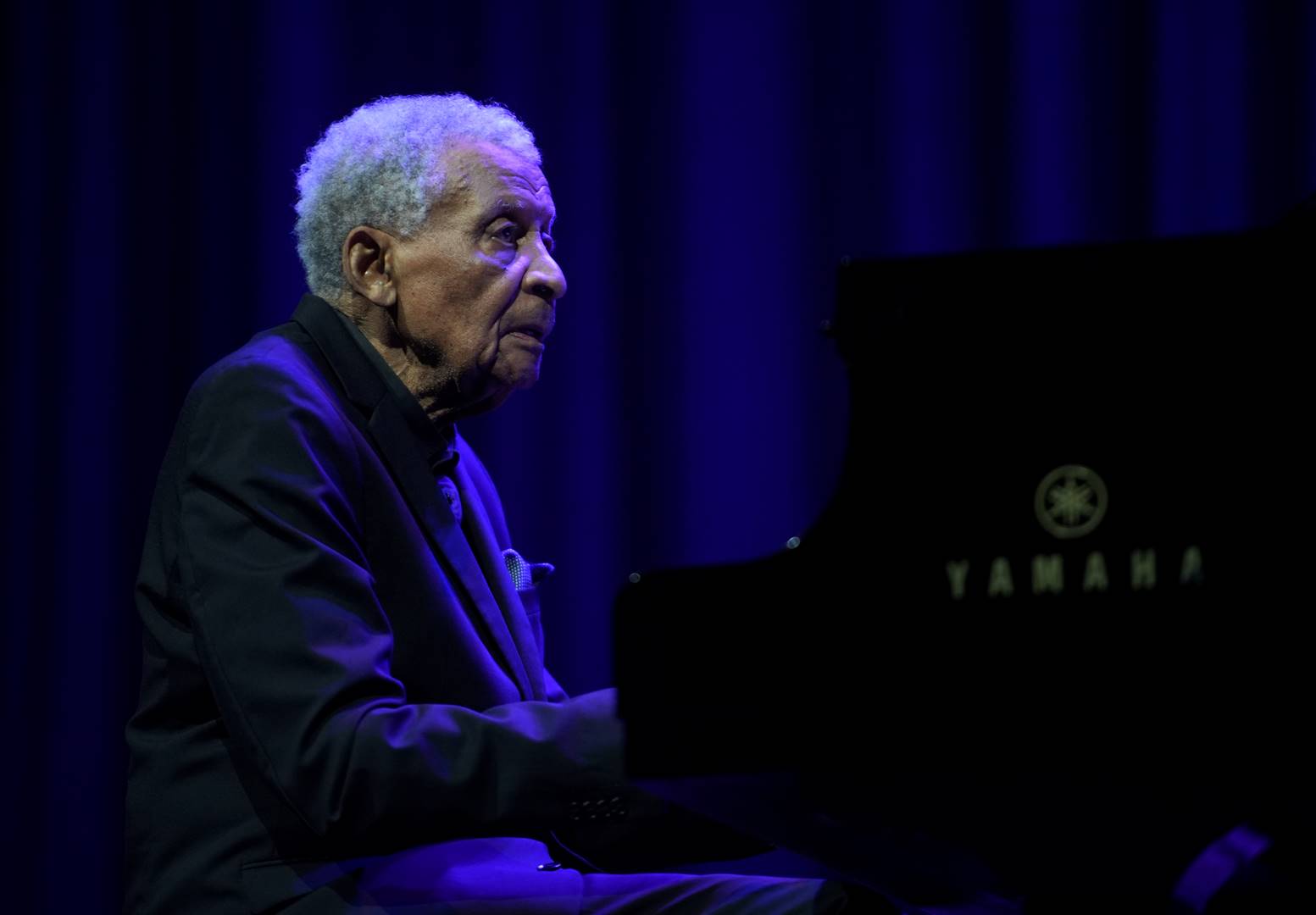Abdullah Ibrahim: Biography

Born: 9 October 1934, District Six, Cape Town, South Africa
Birth name: Adolph Johannes Brand
Occupation: Pianist, composer, bandleader
Also known as: Dollar Brand
Abdullah Ibrahim, born Adolph Johannes Brand, grew up in District Six, Cape Town, a neighbourhood marked in the mid twentieth century by dense social networks and sustained musical activity. Church hymnody, carnival repertoires, and urban dance forms were present in the soundscape. Ibrahim began piano in childhood and by his teens was performing publicly, absorbing styles that would remain audible in his later writing and improvisation.
By the 1950s he was active under the name Dollar Brand on Cape Town’s bandstand circuit. Early ensembles included the Tuxedo Slickers, followed by the Jazz Epistles with Hugh Masekela, Kippie Moeketsi, Jonas Gwangwa, and others. Their 1960 recording, Jazz Epistle, Verse 1, is frequently cited as the first modern jazz LP by a South African group and provides a documentary record of a developing local modernism.
The political climate after the Sharpeville killings of 1960, alongside restrictions on Black musicians, precipitated a period of exile for many artists. Ibrahim left South Africa in the early 1960s. In 1963, Duke Ellington heard him in Zurich and arranged a session in Paris, initiating an international career. From this point Ibrahim’s work registers an exchange between Cape Town idioms, marabi figures, goema inflections and broader jazz practices.
Through the 1970s and 1980s he recorded extensively in Europe and the United States. The 1974 piece “Mannenberg (Is Where It’s Happening),” featuring Basil Coetzee and Robbie Jansen, achieved wide circulation inside South Africa and came to bear social meanings connected with resistance to apartheid. Other pieces, including “The Wedding” and “Tintinyana,” entered the repertoire of South African jazz and have been performed and recorded by subsequent generations.
After 1990 Ibrahim returned to South Africa with increasing frequency, performing, recording, and undertaking educational projects. His later public recognition includes the United States’ NEA Jazz Masters award (2019). Performances in the twenty first century often present extended suites in which older Cape materials are re-examined alongside newer compositions, producing a cumulative musical autobiography.
Selected Discography
- Jazz Epistle, Verse 1 (1960) — with the Jazz Epistles
- Mannenberg (1974)
- Water from an Ancient Well (1986)
- Mindif (1988)
- A Celebration (1997)
- Senzo (2008)
- The Balance (2019)
Key Associations
- Hugh Masekela — trumpet, colleague in the Jazz Epistles
- Kippie Moeketsi — alto saxophone, early collaborator
- Jonas Gwangwa — trombone, member of the Jazz Epistles
- Robbie Jansen — saxophone on “Mannenberg”
- Basil Coetzee — tenor saxophone on “Mannenberg”
- Duke Ellington — patron of the 1963 Paris recording